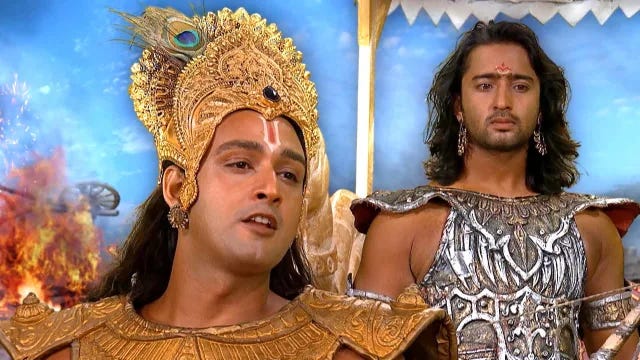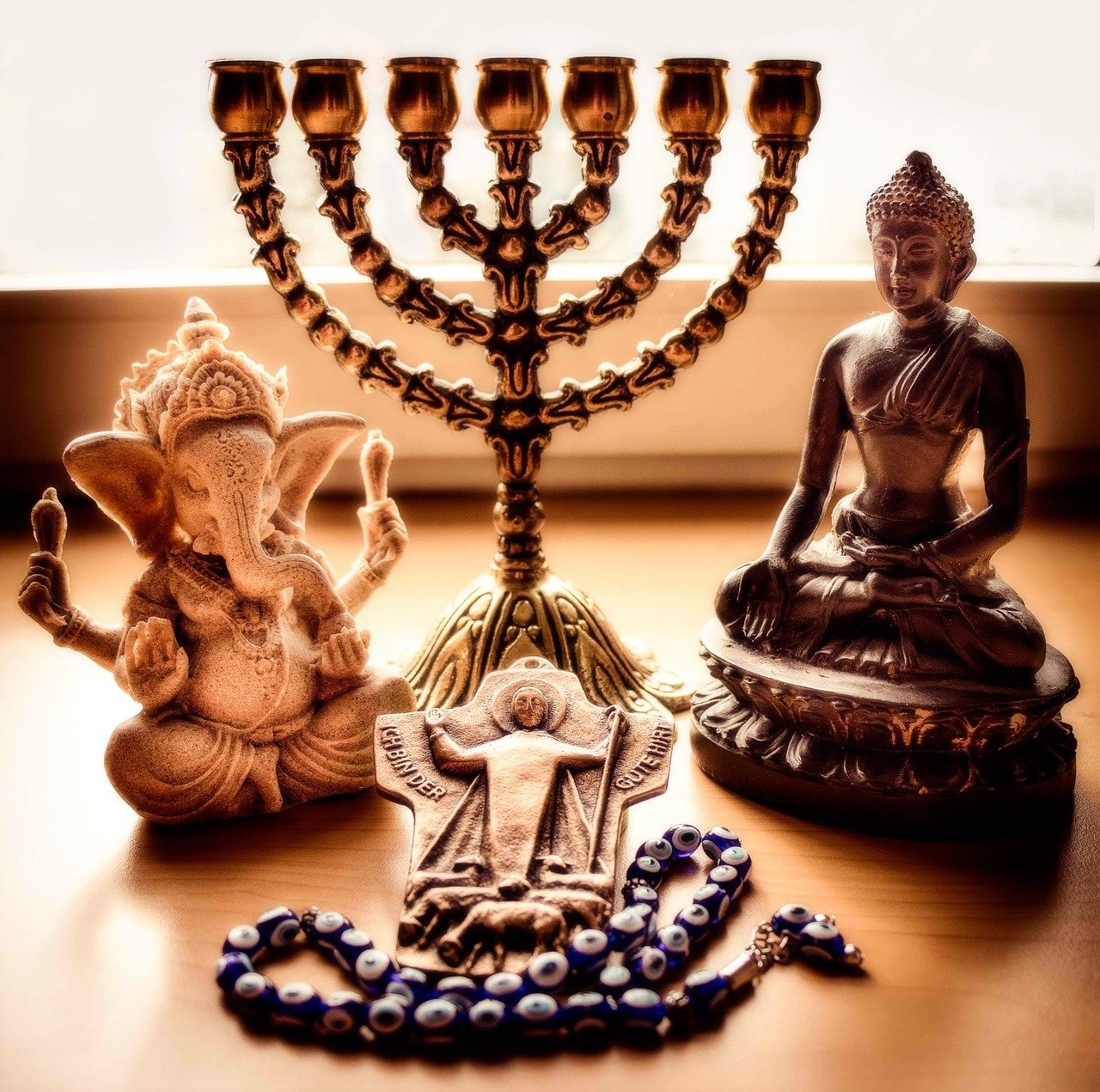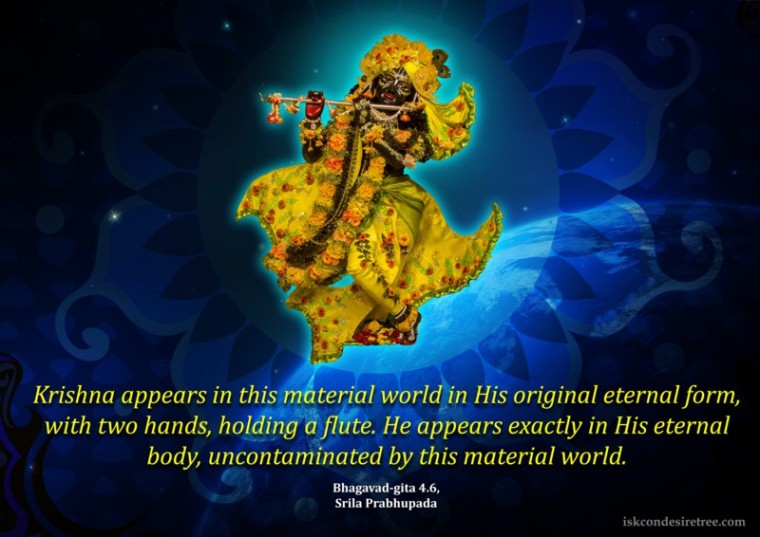Wisdom of Bhishma Pitamah Quotes that Resonate Through Time
Bhishma Pitamah, a character from the Indian epic Mahabharata, is revered for his unwavering principles, dedication to dharma (righteousness), and profound wisdom. His life reflects an intricate tapestry of loyalty, sacrifice, and moral fortitude. The quotes attributed to him encompass themes of duty, love, justice, and the complexities of human nature, making them timeless lessons that continue to inspire generations. In this article, we will explore some of Bhishma Pitamah’s most poignant quotes, delving into their meanings and implications in our lives today.
The Essence of Duty and Responsibility

The concept of duty plays a pivotal role in Bhishma’s teachings. He exemplifies what it means to live a life of responsibility, often placing the needs of others before his own. His quotes about duty are not just words; they represent a philosophy that encourages individuals to act with integrity and commitment.
Understanding Dharma through Bhishma’s Lens
Dharma, or righteousness, is a recurring theme in Bhishma’s quotes. He believed in adhering to one’s duties regardless of personal costs.
The interpretation of dharma often varies among individuals, influenced by societal norms and personal beliefs. However, Bhishma’s unwavering commitment to his dharma sets a high standard. When he vowed to serve his father and uphold the Kuru lineage, he embodied the essence of selflessness. His famous quote, “To be able to serve your country and protect the weak, that is true service,” encapsulates this belief beautifully.
In modern contexts, this can be likened to the responsibilities we hold—be it towards family, community, or even our profession. It urges us to reflect on how we define our roles and the extent to which we fulfill them. Are we merely fulfilling obligations, or are we genuinely committed?
Sacrifice as an Act of Love
Bhishma’s life was marked by extraordinary sacrifices, particularly regarding his vow of celibacy. His commitment to sacrifice for the greater good reflects a profound understanding of love—a love that transcends personal desires.
When Bhishma says, “Those who do not understand the essence of sacrifice cannot appreciate love,” he captures the delicate balance between personal happiness and collective welfare. This quote invites introspection about the sacrifices we are willing to make for those we love.
In today’s fast-paced world, we often prioritize individual gains over collective well-being. Bhishma’s wisdom serves as a reminder that true love sometimes requires us to step back, reassess our priorities, and make choices that may not be personally advantageous but benefit the greater good.
The Nature of Choices
Every decision comes with consequences, and Bhishma understood this deeply. His life was filled with choices that tested his morals and ethics, and he navigated them with remarkable clarity.
When he states, “The choices we make shape our destiny,” he emphasizes the weight of decision-making. Each choice carries implications that extend beyond ourselves. This idea resonates profoundly in contemporary discussions around ethical leadership and responsible citizenship.
This notion challenges us to think critically about our daily choices and their potential impacts. Are we considering the long-term effects of our actions? Bhishma’s insights encourage a reflective approach to decision-making—one that values foresight and broader implications.
The Complexity of Relationships

Bhishma’s relationships, especially with the Kauravas and Pandavas, reveal much about the complexities of familial bonds and loyalty. His quotes often delve into the intricacies of love, conflict, and allegiance, offering rich insights into human relationships.
Loyalty and Its Boundaries
Loyalty is a double-edged sword, and Bhishma’s life illustrates this truth. He was fiercely loyal to the Kuru dynasty, yet this loyalty often put him at odds with his moral compass.
Bhishma’s quote, “True loyalty is not blind; it sees the truth and acts accordingly,” reflects the essence of loyalty as a conscious choice rather than mere compliance. It suggests that loyalty should not come at the expense of righteousness.
In our lives, loyalty can sometimes cloud our judgment, leading us to support wrongdoings out of allegiance. This quote pushes us to evaluate our loyalties—are they rooted in truth, or are they simply habits that cause us to overlook injustices?
Love Beyond Conflict
Bhishma’s relationships are riddled with conflict, particularly seen in his interactions with Duryodhana and Yudhishthira. Despite being caught in the web of war, he maintained a deep love for his family.
His words, “Love does not justify wrongdoing; it must seek harmony,” challenge us to reconsider the meaning of love in times of conflict. Love is not enough to excuse harmful actions; instead, it must strive for resolution and understanding.
In navigating relationships filled with tension, this quote serves as a guiding principle. It urges us to pursue healing rather than holding onto grievances, promoting a culture of dialogue and empathy.
The Role of Forgiveness
Forgiveness is a recurring theme in many of Bhishma’s philosophical reflections. He embraced forgiveness as a path toward reconciliation, despite the enormity of the conflicts around him.
When he professes, “Forgiveness is the greatest strength; it liberates the soul and unburdens the heart,” he offers us insight into emotional resilience. Holding onto anger can weigh us down, while forgiveness frees us to move forward.
In a world fraught with division, embracing forgiveness can be transformative. It not only mends relationships but also fosters personal peace. Bhishma’s wisdom here calls for an examination of our grudges—what would it take for us to let go?
The Pursuit of Knowledge

Knowledge is power, and Bhishma valued wisdom above all. His quotes reflect a deep understanding of learning, intellect, and the importance of seeking knowledge throughout one’s life.
The Importance of Wisdom
For Bhishma, wisdom was not merely about accumulating information; it was about applying that knowledge to lead a righteous life.
He stated, “Knowledge without application is like a fruitless tree; it has the potential but bears no fruit.” This observation highlights the necessity of converting knowledge into actionable steps.
In our contemporary world, the quest for knowledge is often overshadowed by the pursuit of degrees or accolades. However, Bhishma’s wisdom reminds us that true understanding lies in how we use what we know. Are we applying our knowledge for the betterment of ourselves and society?
Continuous Learning
Bhishma’s journey underscores the importance of continuous learning. As circumstances evolve, so too must our understanding and interpretations.
“Life is a continuous lesson; every moment presents an opportunity to learn,” he proclaimed, emphasizing that learning never ceases. This perspective encourages humility and adaptability in our pursuits.
In an era where change is constant, embracing lifelong learning becomes essential. Bhishma’s insights challenge us to remain curious and open-minded, ensuring that we grow alongside the evolving landscape of knowledge.
The Mentor’s Role
As a mentor to many, Bhishma recognized the impact of guidance and the responsibility that comes with sharing wisdom.
He articulated, “A true teacher imparts wisdom that empowers others to find their own path.” This definition broadens the scope of mentorship, emphasizing empowerment rather than dependency.
In current educational frameworks, this principle can inform teaching methodologies and leadership styles. Are we fostering independence in those we guide? Bhishma’s view on mentorship inspires a shift toward nurturing critical thinking and self-reliance among learners.
The Balance of Strength and Compassion

Bhishma represents a blend of strength and compassion, showcasing that true power lies in vulnerability and empathy. His quotes resonate with the importance of balancing assertiveness with kindness, a lesson relevant to both leadership and personal conduct.
The True Nature of Strength
Strength is often misconstrued as sheer dominance; however, Bhishma challenges this narrative with his assertion, “Real strength is the ability to remain gentle in the face of adversity.”
This remark elevates gentleness as a form of strength. It highlights that true leaders do not need to overpower but rather uplift and inspire.
In various settings—be it workplace dynamics or interpersonal relationships—this wisdom can transform how we perceive authority. Cultivating strength through kindness fosters trust and cooperation, leading to healthier environments.
The Impact of Empathy
Empathy is a vital quality that Bhishma espoused. He recognized that understanding others’ feelings enhances connections and cultivates harmony.
His saying, “Empathy is not weakness; it is the foundation of true connection,” reinforces this idea. By practicing empathy, we create spaces for dialogue and mutual respect, crucial in resolving conflicts.
In a time marked by polarization, Bhishma’s insights beckon us to cultivate empathy actively. This can bridge divides and foster deeper relationships in both personal and professional spheres.
Balancing Assertiveness and Compassion
Finding a balance between being assertive and compassionate is key to effective leadership. Bhishma’s management of conflicts during the Mahabharata reflects this equilibrium.
With the quote, “Leadership is not just about making decisions; it is about ensuring those decisions resonate with compassion,” he underscores the dual responsibility of leaders—decision-making coupled with empathy.
This perspective informs contemporary leadership practices, emphasizing that successful leaders must connect with their teams on a human level. How can we ensure that our decisions consider the emotional landscape of those affected? Bhishma’s wisdom champions a holistic approach to leadership.
FAQs
What is Bhishma Pitamah known for?
Bhishma Pitamah is known for his unwavering commitment to dharma (righteousness) and his role in the Mahabharata. He made significant sacrifices for his family and upheld moral principles throughout his life, serving as a wise advisor and warrior.
How do Bhishma Pitamah’s quotes apply to modern life?
Bhishma Pitamah’s quotes emphasize themes such as duty, sacrifice, knowledge, and compassion, which are relevant in contemporary discussions around ethics, leadership, and personal relationships. His wisdom encourages self-reflection and a commitment to higher ideals in everyday life.
Why is Bhishma considered a symbol of sacrifice?
Bhishma is considered a symbol of sacrifice because he took a vow of celibacy to honor his father’s wishes and dedicated his life to serving the Kuru dynasty. His sacrifices often came at great personal costs, highlighting a profound sense of duty and loyalty.
How can Bhishma’s teachings influence leadership styles today?
Bhishma’s teachings highlight the importance of combining strength with compassion in leadership. His insights encourage leaders to make informed, empathetic decisions that foster collaboration and trust within their teams, ultimately leading to more effective and harmonious environments.
What lessons can we learn from Bhishma Pitamah’s relationships?
Bhishma’s relationships illustrate the complexities of loyalty, love, and forgiveness. Key lessons include evaluating the boundaries of loyalty, recognizing the importance of love in conflict resolution, and practicing forgiveness as a means of personal growth and healing.
Conclusion
The quotes and teachings of Bhishma Pitamah offer profound insights that transcend time and culture. They invite introspection on duty, love, ethics, and the complexities of human relationships. In our pursuit of meaning and purpose in life, embracing these lessons can guide us toward a path of righteousness, empathy, and self-discovery. As we navigate the labyrinth of existence, Bhishma’s wisdom remains a beacon, illuminating the way forward with integrity and compassion.
